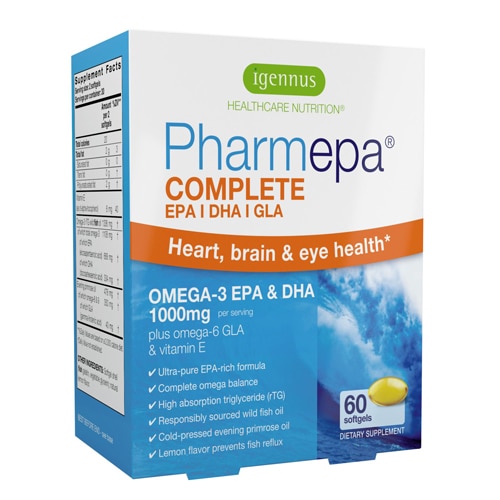Gaining a lot of weight during the first trimester of your
pregnancy might seem like a good idea. After all, the popular belief is that you are now “eating for two.”
However,
excessive weight gain near the start of pregnancy could have negative consequences for your child that will show up later in life, according to a new study.

Excessive first trimester weight gain linked to health risks
Excessive weight gain during the first trimester of pregnancy can lead to more fat distribution in the upper arms and abdomen of fetuses, according to researchers at the National Institutes of Health.
The researchers say children born with a higher birthweight might face an increased risk of obesity later in life, as well as a higher risk of high blood pressure, heart disease and diabetes.
Importantly, the study found that excessive weight gain – which the researchers defined as more than 2 kilograms, or about 4.4 pounds -- during the first trimester caused the fetus to maintain greater arm thickness and abdominal measurements right through a pregnancy.
That was true even if a mother's weight gain was not excessive during the second and third trimesters.
First trimester weight gain: Should you restrict calories?
The researchers said their findings suggest that the timing of weight gain during pregnancy is a crucial factor in whether a child ends up with at a higher risk of obesity and other health conditions later in life.
That raises the question of whether pregnant women should restrict their calorie intake during the first trimester.
Rita Smith, a registered dietitian with Sentara Martha Jefferson Hospital in Charlottesville, Virginia, says the study results should be approached with caution.
“Women who hear about this study may begin to unnecessarily restrict their eating during the first trimester of pregnancy, potentially limiting their intake of beneficial and essential nutrients for both mom and baby,” she says.
As a general rule, dieting and restrictive eating are not recommended during pregnancy, Smith says.
She urges pregnant women and those thinking of becoming pregnant to work with their physician before making any changes to their usual eating pattern.
“Counter to the common phrase ‘eating for two,’ there are no additional calories needed during the first trimester of pregnancy,” Smith says.
Instead, pregnant women should concentrate on eating a healthful diet that includes the essential nutrients necessary to maintain the health of both mother and baby, she says.
Eating well prior to pregnancy
If you
plan on becoming pregnant, the time to make dietary changes is now, Smith says.
“Being pregnant can be motivating to women to make dietary changes for the better,” she says. “But it can be helpful to make changes in the diet even before becoming pregnant.”
Smith recommends aiming to be at a healthy weight and being physically active in the period preceding a planned pregnancy.
Also, try to get between seven and nine hours of restful sleep each night and avoid all alcoholic beverages and smoking.
“It is great to go into pregnancy in good health,” she says.
How you should eat during pregnancy
Smith says that once you are pregnant, it’s important to focus on eating three meals -- evenly spaced throughout the day -- that can provide nutrients such as protein, carbohydrates, fats and essential fatty acids, fiber, vitamins and minerals, and antioxidants.
One way to achieve this goal is to divide your plate as follows:
- Half of the plate with fruits and vegetables
- One-quarter of the plate starchy vegetables and whole-grains
- One-quarter of the plate with protein
Smith also recommends drinking plenty of fluids such as water, milk and decaffeinated coffee or tea. She says it’s best to skip sugary sodas and fruit drinks.
“Dairy foods such as milk and yogurt are important also -- for example, milk as the beverage at meals,” Smith says.
It is crucial to eat three meals and not to skip any of these. “It is hard to meet nutritional needs when skipping meals, and can lead to unhealthy snacking later in the day,” Smith says.
Meals can be simple, such as a smoothie made from yogurt, frozen fruits and vegetables, and
nut butters for breakfast, Smith says. Or, try peanut butter on whole wheat bread and homemade veggie soup for lunch.
The Centers for Disease Control and Prevention echoes Smith’s recommendation that pregnant women should not consume extra calories during the first trimester of pregnancy.
During the second trimester, a
woman should increase food intake by 340 calories a day, the CDC says. In the third trimester, boost your intake by 450 calories daily.
“Ask your obstetrician about seeing a registered dietitian who can help develop meal plans that fit your lifestyle and family needs,” Smith says.
Smith also recommends consulting the
USDA Dietary Guidelines for Americans, 2020-2025. She notes that they have a big section on eating during pregnancy and lactation.
More meal ideas during pregnancy
If you are looking for menu suggestions during your pregnancy, Smith recommends the following:
Protein:
- Animal -- meat, poultry, fish, eggs, dairy
- Plant-based -- nuts, legumes and lentils, soy
“Eight to 12 ounces of low-mercury seafood is recommended per week for brain development of the fetus,” Smith says. She notes that this can include cod, flounder, salmon and shrimp.
Starchy vegetables:
- White and sweet potatoes
- Dried beans and peas, corn and green peas
- Whole-grain breads and cereals, oats, barley, whole wheat, brown rice and quinoa
Other fruits and vegetables:
- A wide variety of colorful fruits and vegetables, both raw and cooked
Healthful fats:





